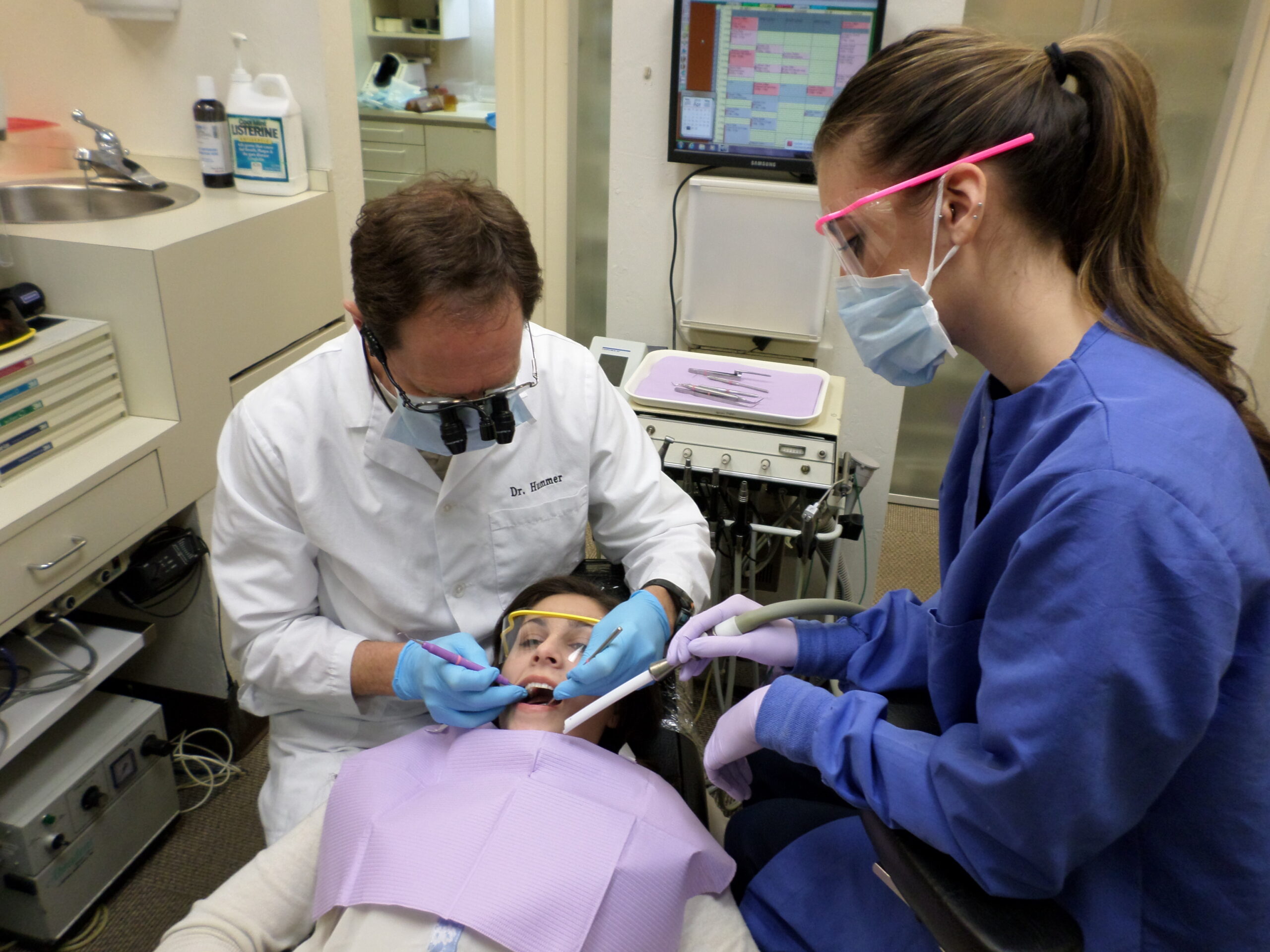Dental Care During COVID-19: What Patients Should Know

While most dental practices were closed or operating on a limited basis during the height of the COVID-19 shelter-in-place mandates, as of mid-summer, most are open for regular business again. However, it will likely be some time before things return to business as usual. We spoke to San Leandro-based dentist Dr. William Hummer to learn how the pandemic has impacted dental practices’ daily operations and what patients should expect regarding scheduling and care.
“We are soldiers in the war against disease.”
Like many dental practices, Dr. Hummer’s office continued to operate on a limited basis through the early months of the pandemic. “We would see one extremely painful, potentially life-threatening toothache in the morning and one in the afternoon,” he recounts. “Basically, we were down from around 40 patients a day to two patients a day. During that time, we were learning and incorporating all the new adaptations for COVID-19 safety protocol. Around mid-June, we resumed regular operations, including preventative care.”
The fact that Dr. Hummer kept his office running at all during the pandemic speaks to his professional commitment and personal courage. According to The New York Times, dentists rank among the most at-risk professionals in terms of exposure to COVID-19. However, as Dr. Hummer explains, this wasn’t going to stop him from helping patients in need. “Dental professionals have always been exposed to everything, and COVID-19 is just one of many risks we’ve faced. But we are soldiers in the war against disease. You don’t become a Marine and then say, ‘I don’t want to fight.’ I knew I was signing up for this when I started my career years ago.”
Precautionary measures
As more dental offices started reopening to regular patients in late spring and early summer, the first priority was creating a safe environment for both patients and staff. Dr. Hummer summarizes the many precautionary measures that his office has put in place. “We have fewer staff in the office, and I work without an assistant as much as possible. We don’t have a waiting room—instead, patients wait in their cars and we text them when it’s time to come in. Patients must also fill out an extensive health questionnaire and an intake form before every visit. Furthermore, we’ve implemented additional sterilization procedures. For example, we fog the treatment room with hypochlorous acid after every patient, as well as the entire office at the end of each day.”
While important, these measures do create delays, which means fewer patients can be treated in a regular workday compared to the past. “It puts us under some pretty tremendous time pressure,” affirms Dr. Hummer. “I would guess that we’re operating at 75 percent of our pre-pandemic capacity. A lot of other dentists are experiencing similar reductions, and as a result, they’re under real financial strain. The reality is that dentists’ profit margins aren’t all that big, so even a 25 percent reduction in patients can have a significant impact.”
Scheduling challenges
After three to four months of being closed for preventative care, most dentists now have a substantial backlog of missed appointments to catch up on. However, this is just one of many factors that pose scheduling challenges for dentists right now. “In addition to those trying to reschedule their missed exams, there are patients who lost their jobs due to the pandemic and want to get in before their insurance coverage ends,” explains Dr. Hummer. “There are also patients who are still furloughed from their jobs and figure they should see the dentist now, just in case they get laid off and lose their insurance. Basically, things have never been more tumultuous schedule-wise. We’ve never had more emergencies, cancellations and people trying to get in at the last minute. It’s very unpredictable right now.”
For patients who want to get in for an appointment as soon as possible, Dr. Hummer recommends calling daily to inquire about schedule openings. “We check our voicemail messages every morning, and sometimes there are last-minute cancellations. In such instances, a patient may be able to get in same-day if they call early.”
Assessing risk
While some patients are anxious about seeing their dentists, others are anxious about the potential health risks involved in doing so. According to the Centers for Disease Control and Prevention, there is currently no data available to assess the risk of SARS-CoV-2 (the virus that causes COVID-19) from visiting the dentist. “Dentistry has been back up and running for two months now, and I don’t think there has been any implication that dental offices have become a significant source of COVID-19 spread,” says Dr. Hummer. “So, I think it’s safe to say that people should get themselves and their kids in before they get cavities or the cavities they already have get bigger.”
Indeed, Dr. Hummer predicts a coming influx of patients who develop dental issues as a result of missing out on preventative treatment. “Because of the lack of preventative care, we’re going to be a lot more reactive over the next five years. A lot of patients are going to end up with problems that cost 10 times as much to fix because they weren’t caught in time. For example, a small cavity might cost $250 to fix, but if it reaches the nerve and needs a root canal, post, and crown, you’re looking at $2,500.”
Whether or not you’re concerned about the health risks of visiting the dentist, Dr. Hummer says it’s important to use good judgment when receiving dental services. “With dentistry, as with all health care, you should trust your instincts and be your own advocate. Make sure everything looks clean and proper precautions are being taken.” And, of course, he recommends a diligent independent dental hygiene regimen. “Invest in yourself by cleaning your teeth really well at home. That’s the most important thing you can do for your teeth—even more important than going to the dentist.”